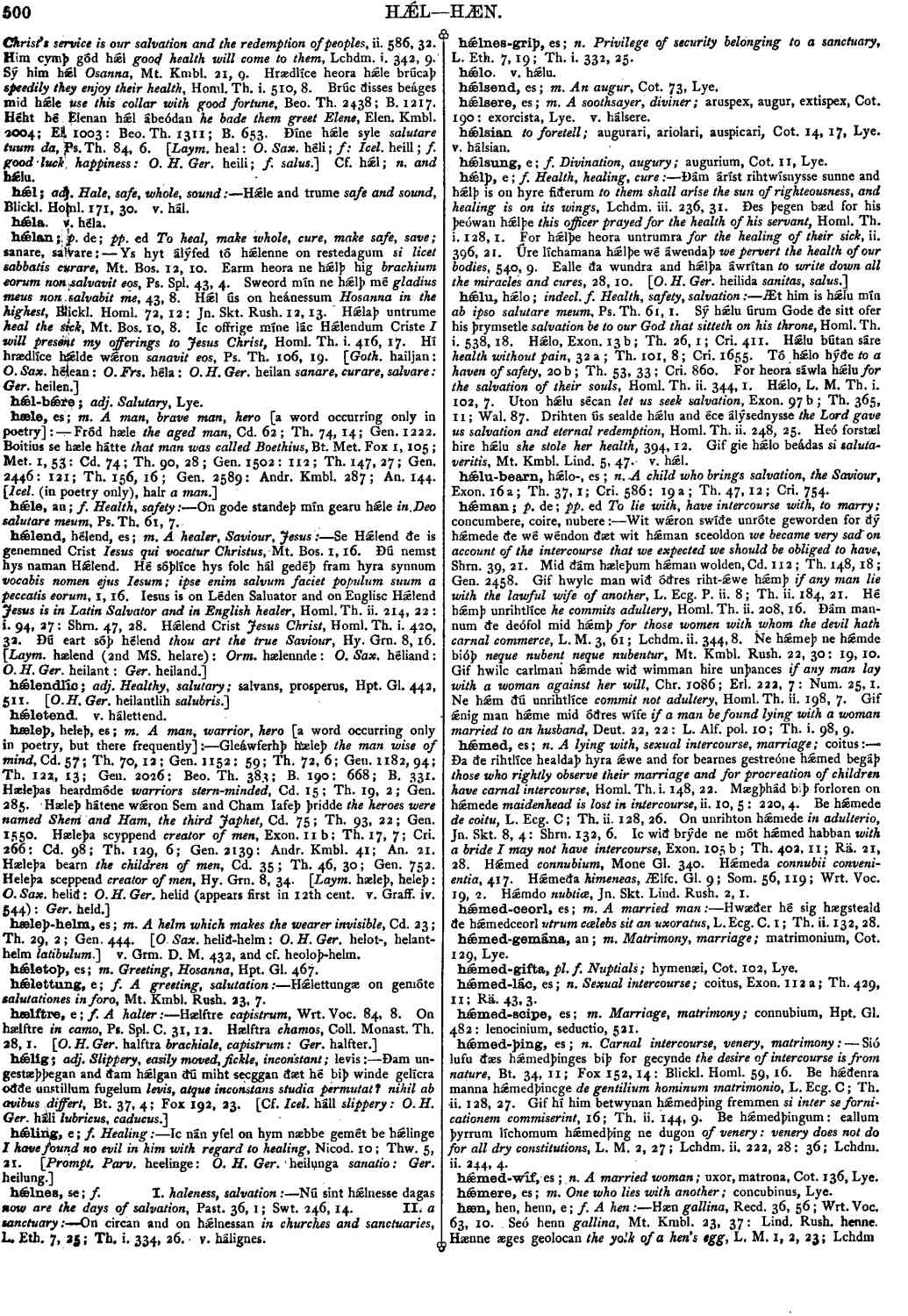hǽman
- verb [ weak ]
-
Wit wǽron swíðe unróte geworden for ðý hǽmede ðe wé wéndon ðæt wit hǽman sceoldon
we became very sad on account of the intercourse that we expected we should be obliged to have,
- Shrn. 39, 21.
-
Mid ðám hæleþum hǽman wolden,
- Cd. 112; Th. 148, 18; Gen. 2458.
-
Gif hwylc man wið óðres riht-ǽwe hǽmþ
if any man lie with the lawful wife of another,
- L. Ecg. P. ii. 8; Th. ii. 184, 21.
-
Hé hǽmþ unrihtlíce
he commits adultery,
- Homl. Th. ii. 208, 16.
-
Ðám mannum ðe deófol mid hǽmþ
for those women with whom the devil hath carnal commerce,
- L. M. 3, 61; Lchdm. ii. 344, 8.
-
Ne hǽmeþ ne hǽmde bióþ
neque nubent neque nubentur,
- Mt. Kmbl. Rush. 22, 30 : 19, 10.
-
Gif hwilc carlman hǽmde wið wimman hire unþances
if any man lay with a woman against her will,
- Chr. 1086; Erl. 222, 7 : Num. 25, 1.
-
Ne hǽm ðú unrihtlíce
commit not adultery,
- Homl. Th. ii. 198, 7.
-
Gif ǽnig man hǽme mid óðres wífe
if a man be found lying with a woman married to an husband,
- Deut. 22, 22 : L. Alf. pol. 10; Th. i. 98, 9.
Bosworth, Joseph. “hǽman.” In An Anglo-Saxon Dictionary Online, edited by Thomas Northcote Toller, Christ Sean, and Ondřej Tichy. Prague: Faculty of Arts, Charles University, 2014. https://bosworthtoller.com/17909.
Checked: 0